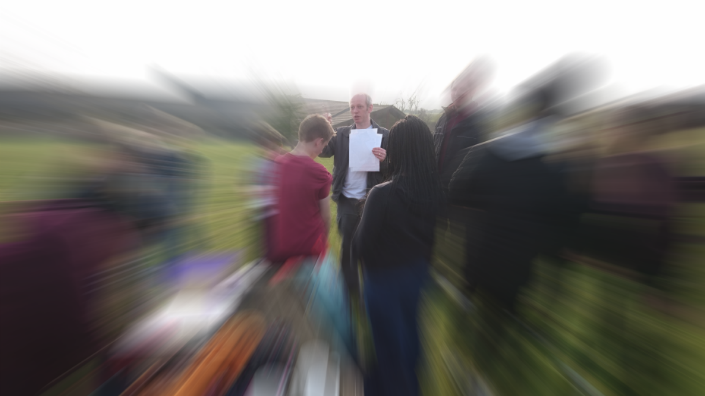A different approach to youth ministry
Organising chaos - Andrew Ginn realised that age shouldn’t be the most important factor when it comes to structuring youth ministry

If there was one thing that made me want to quit working with young people, it’s the moment when you’re sitting with a group, mid-testimony about the life-changing power of our resurrected Jesus and the love He has for each of us… and a 12 year-old stops you mid-sentence to say “how much longer till we can play football?”.
Or when an 18 year old does exactly what you’ve been telling them for years, and they bring a friend to their Bible study group. The normal buzzing, intriguing discipleship discussion suddenly becomes a lot of awkward shuffling, as the group are torn between making the new person feel welcome, and wanting to get stuck in to some deep conversation about the Bible stories they’ve been contemplating for years.
It’s a horrible feeling when expectations and experience don’t match up. It seems that all too often there’s a gap between what young people expect from a youth group, and what youth ministry delivers. The mismatch begs the question as to whether some of our assumptions as leaders are the problem.
When we stepped back and thought about it, we realised that the structure of our youth ministry suggested our assumption was that as young people got older, they got holier; that all 18 year olds would be best served by an intense discipleship discussion group, and all 11 years were best served by football with a God-slot. In hindsight, sorting youth ministry by age seems arbitrary.
Why shouldn’t young people encounter the Gospel for the first time, aged 18? Why shouldn’t a 12 year old want to sit and share stories about their saviour for an hour?
The aim of our youth ministry is to help people grow in faith, irrespective of age. It’s been observed that there are patterns to the ways people grow in faith [i], and yet none of these patterns regimentally adhere to school years.
The alternative, inspired by models of faith development, was to structure our church’s youth ministry according to the beliefs of current or potential attenders, rather than our assumptions about would-be attenders, based on their age.
The first step in changing our approach was to improve our communication, so that all our flyers, posters and language about the church’s youth ministry would give a crystal clear picture of what attendees could expect. All our groups are open to 11-18s, and young people have the choice as to which group would suit them best either for a specific topic, or for their general participation.
Our base line assumption for people opting into our church’s youth ministry was that they could be wondering “Is God even real?”. If people don’t want to discuss that question, they’d be welcome to keep coming along; at least they’d have fair warning that that’s the sort of thing they might get asked.
If they’d say “God’s probably real, but I don’t know about Jesus”, it might be that they’d enjoy our group that explores Christianity. This weekly group uses only a few Bible passages per get-together, with a bunch of other contemporary references and ideas thrown in, as well as lots of food.
The next step for those growing in their faith would be to say “Jesus was probably real, but I don’t really know what that means for me yet”. In our model, this became the assumed positon behind our Sunday morning gatherings. Often children were brought by parents and would agree that Jesus was probably real, but they hadn’t connected the consequences of the incarnation with their life or values.
Our other group is for those who are proactively nurturing their faith in Jesus. They’d say “I want to work out how to live and practise my faith in Jesus in every decision”. This would be a group that mostly draws on the Bible for discussion, comparing one scripture against another, and praying it through.
The model is still being tweaked: we’re currently exploring how we can better integrate mentoring, and more of a “learning-by-doing” approach.
Since we’ve transitioned to this model, we’ve not had flocks of people attend (that was never the idea)… But there have been some wonderful, very welcome changes:
-
We’ve seen individual participation increase; young people who put themselves on the fringe now tend to join in more fully.
-
We’re seeing more newcomers stay on, as people find more of what they expect.
-
On top of that, young people have shown they feel more able to invite their friends, with the flyers and publicity all being really clear about what to expect.
-
We’ve seen the leaders feeling more confident in their roles, knowing where to pitch their sessions. It’s been easier to manage differences in expectations when the purpose of the group is clearly out in the open.
All in all, it’s been a very worthwhile adventure so far. The thought process is even leading us to ask some broader questions: maybe adult house groups don’t have to be organised by geography?
[i] e.g. “Reveal: Where are you”: Hawkins and Parkinson, or “Stages of Faith”: Fowler, or works by Westerhoff
Andrew Ginn is the Associate Minister (Youth and Community) at Bunyan Baptist Church, Stevenage
Baptists Together, 09/09/2016